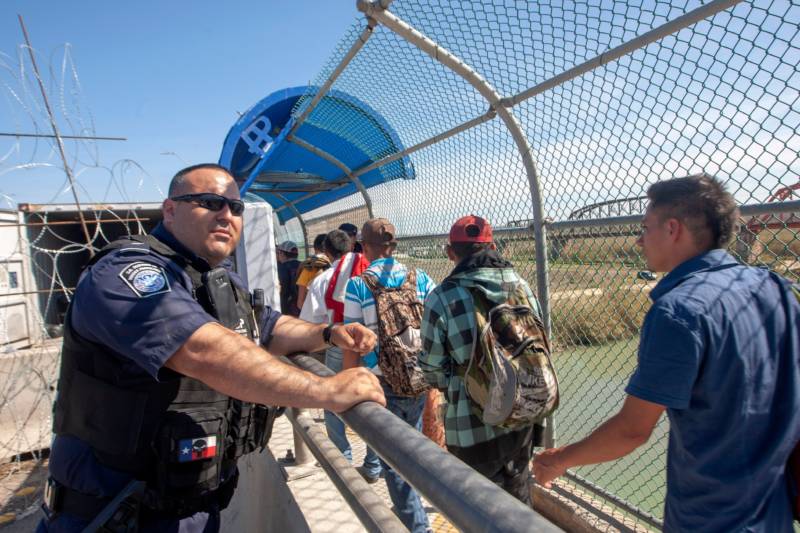Immigration courts along the southern border are giving first priority to the cases of people forced to wait in Mexico, alarming advocates who fear the Trump administration is moving to swiftly deny asylum to thousands of migrants who lack legal representation.
San Diego Judges Told to Speed Up Cases Under Controversial Immigration Policy

At San Diego's immigration court, all eight judges starting next week will only hear the cases of individuals in the Migrant Protection Protocols program, also known as "Remain in Mexico," for the “foreseeable future,” said Ashley Tabaddor, president of the National Immigration Judges Association.
Judges in San Diego and El Paso, Texas, are already conducting initial proceedings with sometimes 80 individuals in the MPP program at the same time, said Tabaddor, who called the move “unprecedented.”
“Dozens and dozens of cases are being scheduled for one singular session and the judge is being allotted maybe a couple of minutes per case,” said Tabaddor. “The judges are frankly experiencing very high levels of anxiety and stress and frustration. They are working at rates that are unsustainable.”
The reshuffling means potentially thousands of other people, some of whom have already waited years to see an immigration judge, are being rescheduled for a later date. Some non-priority cases in the San Diego court, which handles the most MPP cases nationwide, have been been pushed to June 2020, according to immigration attorneys in the area.
The Department of Justice’s Executive Office for Immigration Review, which oversees immigration courts, confirmed that judges will consider MPP cases a priority, akin to those of individuals in locked detention, and that other cases are being pushed back to free up space in court dockets.
“EOIR is shifting resources as necessary in order to address MPP cases as expeditiously as possible,” said Kathryn Mattingly, an agency spokeswoman. “We will continue to evaluate our dockets as we respond to the substantial volume of cases originating from the southern border.”
The agency would not clarify whether MPP cases will take precedence over all others in San Diego, or provide more information on why the government is moving to decide these cases faster.
As of July, nearly 10,700 MPP cases had been referred to the San Diego immigration court, the most of any court nationwide, according to researchers at the Transactional Records Access Clearinghouse at Syracuse University. The vast majority of migrants returned to Mexico to await U.S. court hearings do not have a lawyer, which data shows significantly reduces their chances of winning asylum.
The new guidelines for immigration judges come as the 9th U.S. Circuit Court of Appeals in San Francisco considers whether to allow the Remain in Mexico policy to continue after several California-based legal aid groups and Central American asylum seekers sued. A panel of appellate judges is scheduled to hear oral arguments on Oct. 1.
On Wednesday, 24 Democratic and Independent U.S. Senators, including Senators Kamala Harris and Dianne Feinstein, called on the Trump administration to end the policy. In a letter, the senators said they are concerned about the legality of the program, and the dangerous conditions for mostly Central American families and people forced to wait in Mexican cities for their cases to be heard. Those border areas have some of the highest murder rates and violence in Mexico.
Growing criticism over the Remain in Mexico policy and the impending federal court ruling likely prompted the Trump administration to order immigration judges to prioritize these cases, said Bill Hing, who directs the Immigration and Deportation Defense Clinic at the University of San Francisco, one of the plaintiffs in the 9th Circuit case.
“There's a lot of pressure on them to do something,” said Hing. “I really do think they're trying to speed this up to deflect criticism but also to enter deportation orders as much as possible.”
Elizabeth Lopez, an attorney with the Southern California Immigration Project, said the immigration court in San Diego told her that all the judges there will only be working on MPP cases for the next two months. The delay has affected one of her clients, who is awaiting a hearing so he can remove a bulky electronic ankle monitor he has worn for two years, she said.
“His case was rescheduled to 2020,” she said. “And they refuse to take it off of him."
